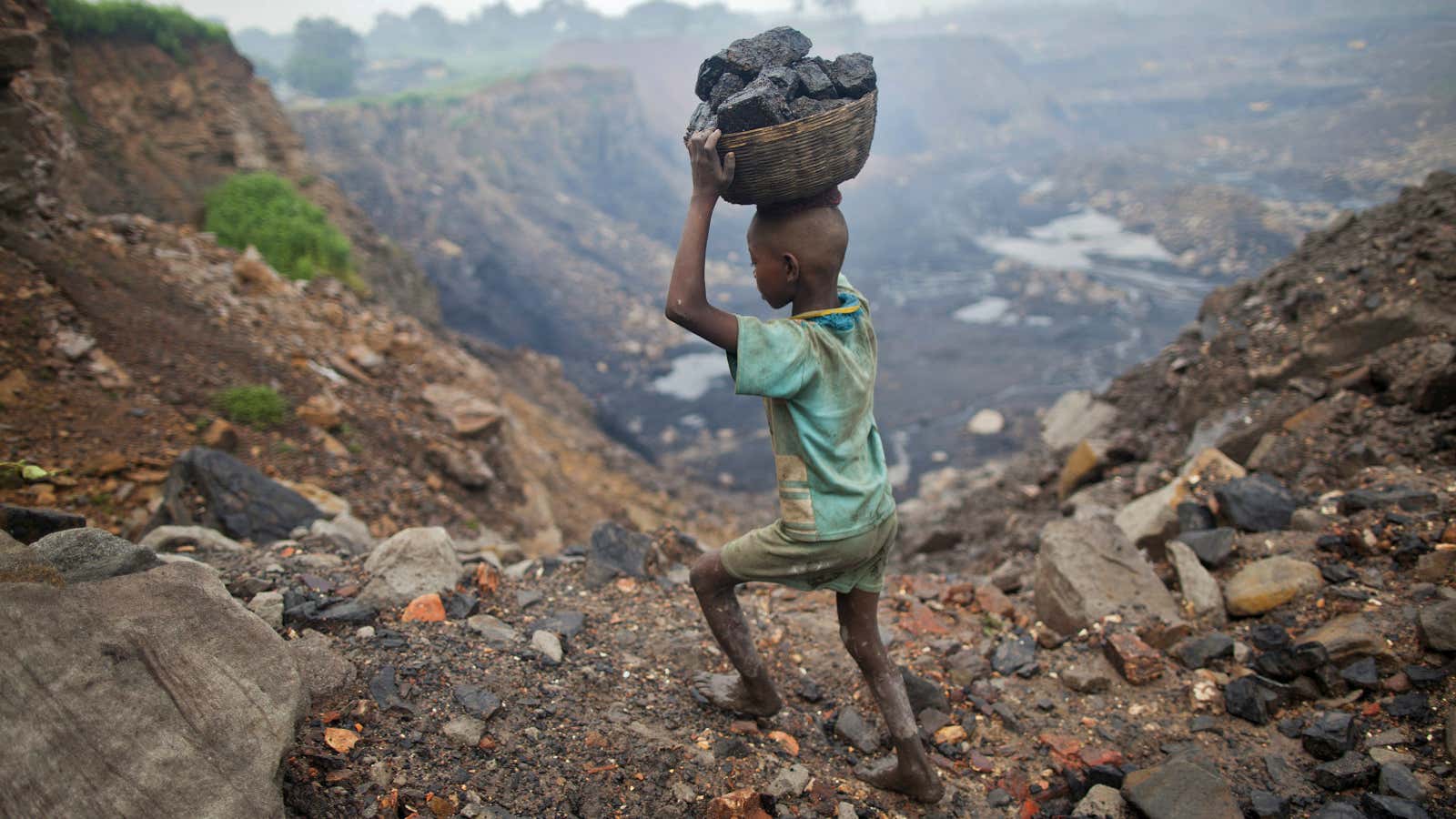India is home to the largest number of enslaved people in the world.
A little over 18 million people—equal to the entire population of Chile—are victims of modern slavery in Asia’s third-largest economy, according to the Global Slavery Index (pdf), published by Australia-based human rights group Walk Free Foundation. Such persons are often engaged in domestic work, construction, farming, fishing, manual labour, forced begging, and in the sex industry.
The index defines modern slavery as a situation where “a person cannot refuse or leave because of threats, violence, coercion, abuse of power or deception, with treatment akin to a farm animal.” This also includes victims of human trafficking, forced labour, debt bondage, forced or servile marriage, and the sale and exploitation of children.
Across the world, nearly 46 million people are held as modern slaves, the report said. Of these, 58% are currently in India, China, Pakistan, Bangladesh, and Uzbekistan.
“Asia, the most populous region in the world, has an estimated two-thirds of the total number of people in modern slavery,” the report said. “This region provides low-skilled labour for the production stage of global supply chains for industries including food production, garments, and technology.”
Meanwhile, North Korea has one out of every 20 persons, or 4.7% of the entire population, enslaved—the highest proportion in the world.
The index was created by Walk Free Foundation along with US-based market research firm, Gallup. Together, they interviewed over 42,000 respondents in 52 languages across the world. In India, they conducted surveys in 15 states, covering 80% of the population, the report said.
A new law
About 1.4% of Indians currently live as modern slaves.
“Vulnerability to slavery in India has some common elements, with poverty and the lack of capacity to absorb shocks, and deep structural inequalities reflecting gender, caste and tribe all being highly relevant,” the report said. This has forced many poor Indians to work as bonded labourers and prostitutes. Often, they are even pushed into begging.
The survey underlined that domestic helps in India are a particularly vulnerable group, as “work takes place in private homes and largely out of the reach of regulation.” Quartz had earlier reported how India underpays its domestic helps even though it makes them work long hours, seven days a week.
The survey, however, also praised the Indian government for its recent effort to curb the scourge.
“Its (India’s) prime minister, its cabinet ministers, its various states, and its major faith leaders are making their intolerance for the continuance of this practice clear,” Andrew Forrest, founder of Walk Free Foundation said in the report. “The Indian government’s imminent anti-trafficking bill is an unambiguous statement that change is happening.”
India is currently in the midst of launching an anti-trafficking bill, which will treat survivors as victims and not criminals.
“Under the existing provisions, the traffickers and the trafficked are both sent to jail,” Maneka Gandhi, India’s minister for women and child development said on May 31. “We propose to change that by treating the victim as a victim.”
The draft bill has proposed penalties for offences such as administering drugs and alcohol to those trafficked, and the setting up of special courts to expedite trafficking cases. The government has also been pushing for the establishment of a new agency to investigate cross-border trafficking cases.
“The bill shows far more compassion and makes a very clear distinction between the trafficked and the trafficker, which is a nuance that should have been made 60 years ago,” Gandhi added.
However, some activists have raised doubts over how effective the proposed law will actually be.
